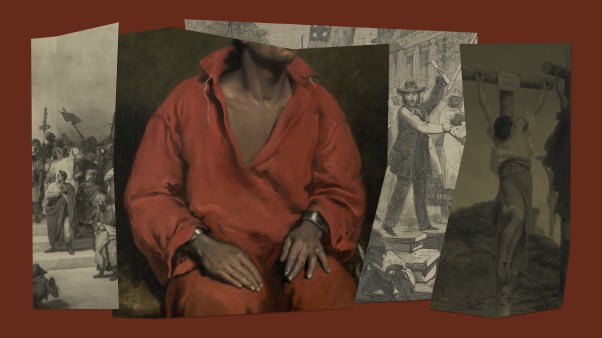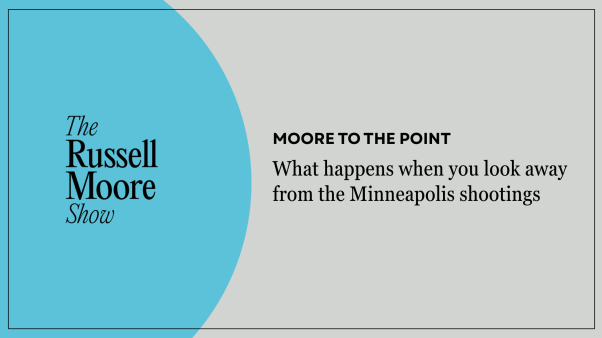In recent decades, there has been a significant and sustained trend of Protestants converting to Roman Catholicism and Eastern Orthodoxy. The most notable figure recently is J. D. Vance, the vice-presidential running mate of former president Donald Trump.
But he’s not alone. Vance is just one name in the growing list of high-profile, theologically conservative Christians who have made public shifts away from their Protestant backgrounds (often evangelical) to these more liturgical or “high church” traditions.
A past president of the Evangelical Theological Society, Francis Beckwith, reverted to Catholicism in 2007, and former Anglican Bishop Nazir Ali, has lately returned to the Catholicism of his youth. Other recent Catholic converts include Cameron Bertuzzi of Capturing Christianity (a popular YouTube channel), historian Joshua Charles, and John Richard Neuhaus, founder of First Things journal. Past prominent converts to Eastern Orthodoxy include Hank Hanegraaff (the “Bible Answer Man”), Lutheran scholar Jaroslav Pelikan, and English bishop Kallistos Ware.
Of course, there are always exceptions to every trend—as is the case with former Eastern Orthodox priest Joshua Schooping, author of Disillusioned: Why I Left the Eastern Orthodox Priesthood and Church, and the Catholic-turned-Protestant Chris Castaldo, who published Why Do Protestants Convert? with Brad Littlejohn last year.
This phenomenon appears less notable in nondenominational churches, since a previous CT article reports that former Roman Catholics have gone from comprising 6 percent of unafilliated congregations to 17 percent in the past 50 years. Also, a 2014 Pew Research Center study highlighted a reverse trend of Catholics converting to Protestantism in Latin America, indicating this may be a geographical trend rather than a global one.
Still, Roman Catholicism is the single largest Christian tradition worldwide, with more than a billion followers, and Eastern Orthodoxy is the second largest, with more than 260 million. According to a recent report by the Orthodox Studies Institute, Eastern Orthodoxy in the US has seen an increase in conversions over the past couple years—with most of the converts from a Protestant background (65%) citing theological reasons for converting (60%). Likewise, the Catholic News Agency recently reported that many US dioceses are seeing a 30–70 percent rise in conversions.
It’s no secret that a growing number of Protestants in the US have become embittered with American evangelicalism. There is, of course, the disillusionment with sexual abuse scandals among well-known leaders and institutions—as well as a distaste for the corporatization and consumerism of the megachurch and “celebrity pastor” model. In addition, the deconstruction movement, mainline progressivism, and many other forces have exerted pressure on 21st-century Protestantism.
But there is also the appeal of these other ecclesial traditions themselves. And while we must be careful not to conflate these two institutions and their significant doctrinal differences, there are similarities in terms of the allure they hold for Protestants who feel disillusioned with their church tradition.
A foundational element in the Eastern Orthodox and Roman Catholic institutions is a rich tradition with doctrinal clarity. This can be quite appealing when compared to modern evangelicalism, which has often exhibited an amnesia for even its own theological tradition that often leads to ambiguity and divisiveness. However, I believe this reflects less on historic Protestantism and speaks more to the lack of organizational leadership, doctrinal consensus, and ecclesial unity among today’s church leaders.
Those who find Catholicism and Eastern Orthodoxy appealing also share in common a longing for the deeper reverence of liturgy and the sacraments, which is often far more mystical, reflective, and reverent than in Protestantism. Aside from the debates around transubstantiation, we can all appreciate this deep reverence for the Eucharist and other biblical mandates. Yet most Protestants don’t realize that many of the early Reformers, like Luther and Calvin, had a similarly high regard for the Lord’s Supper and baptism and that these historic views could be easily recovered within the tradition.
Overall, Roman Catholicism and Eastern Orthodoxy have done a better job of staying connected to the rich heritage of Christendom, and the more ancient catechisms and wider theological retrievals can be appealing to those jumping from the Protestant ship. If you were to step inside a typical American Protestant church and mention John Chrysostom, Irenaeus, or any other church father other than Augustine, for example, I’d wager that most of the congregation would be ignorant of their contributions. And yet these figures are as much a part of our own tradition as they are a part of Catholicism and Eastern Orthodoxy.
Sadly, this ignorance can often be weaponized in interdenominational polemics, with which very few Protestants are prepared to engage. Whereas Protestant apologists and theologians have focused most of their efforts on combatting atheism and secularism, Roman Catholic apologists, for instance, have leaned more heavily into ecclesial dialogue when it comes to promoting their traditions, doctrines, and dogmas—as evident in the reach and influence of organizations like Catholic Answers.
On his podcast, popular Protestant apologist Frank Turek recently spoke with Roman Catholic apologist Jimmy Akin in an episode that revealed his ignorance of the doctrinal differences between Protestants and Roman Catholics. “To be honest, I would love the Roman Catholic Church to be the true church. I have nothing against it. I would love it to be. I just don’t see it,” Turek said. “I’m happy to know that if we get our terminology right, at least we agree on what I think is the most important thing, and that is justification in terms of theology.”
I have a lot of respect for Turek, particularly surrounding his ability to engage with current cultural and societal matters. Yet during this discussion with Jimmy Akin, I couldn’t help but feel he was out of his depth. For one, Protestants and Roman Catholics inarguably do not have the same shared views on justification.
This goes to show that even some of these popular Protestant voices seem unable to accurately discern our theological differences and to graciously engage with important doctrinal distinctions. Protestant leaders should offer better examples of how to respond to claims levied by non-Protestant institutions—both from the pulpit and in the public square. Otherwise, we will continue to see crises of faith, where people are left questioning their ecclesial identity, even converting to other traditions altogether.
So, if Roman Catholicism and Eastern Orthodoxy have the appearance of richer ecclesial institutions—why should we remain Protestant?
First, Protestantism encourages ecumenical engagement. On an episode of his podcast, Truth Unites, Gavin Ortlund points out that the Protestant tradition is equipped to be more ecumenical toward the global body of Christ. Historically, the claims of Roman Catholicism and Eastern Orthodoxy have often been inherently exclusive and anathematizing to those outside their circles. Protestants, on the other hand, have greater grounds for affirming other church traditions with orthodox Christian doctrines on the Trinity, the Resurrection, and Christ’s atoning work of forgiving our sins.
Every soul craves a deep belonging that is rooted in something bigger and more profound than anything we can conjure for ourselves. And that abiding sense of belonging is one of the greatest gifts Christ has offered believers through his church for the past two millennia. In Jesus, we have an eternal connection to all other Christians as we are fellow participants in the same grace, mercy, and salvation.
Secondly, the case for remaining Protestant is bolstered by historical Christianity, which is itself not anti-Protestant. Many Roman Catholics and uninformed Protestants have believed a common misperception that Protestantism is at odds with the ancient church. For instance, Catholic Answers repeated the famous quote from John Henry Newman, Roman Catholic theologian, back in the 19th century: “To be deep in history is to cease to be Protestant.” To the layperson with no sense of the historical depth supporting the Reformation and Protestantism, such an argument can be easily convincing. Yet a deeper examination of the writings of the Reformers tells a different story.
In fact, contrary to the claims of Roman Catholicism and Eastern Orthodoxy, numerous early church teachings are more closely aligned with Protestantism than non-Protestant traditions. When Reformers like Luther and Calvin argued against the doctrinal distortions of Rome in the 16th century, they leveraged their deep knowledge of church history and pointed back to the early church fathers. This can be seen, for instance, in their denouncement of Roman Catholicism and Eastern Orthodoxy for embracing the extrabiblical practice of venerating icons beginning in the first millennia.
And yet most Protestants today are inept and ill-equipped to discuss our history with well-informed Christians from other traditions. As the 21st century faces daunting moral and religious challenges, American Protestants must faithfully study church history to return to our deep historical roots and recover its rich catholicity. As one writer emphasized in a previous CT piece, evangelicals can learn from the likes of theologians like Thomas Aquinas, despite our theological differences.
Finally, the Reformation that started Protestantism served an important purpose: Though not perfectly, it removed non-apostolic and non-scriptural doctrines and dogmas that had infiltrated the church over the course of the first 16 centuries. I am convinced that if Protestants researched the driving factors behind the Reformation, they would be alarmed at some of the unbiblical church teachings that existed during that period. I fear many Protestants do not even know what they believe and why the Reformation was an essential corrective.
For instance, while every tradition claims belief in God’s grace, I believe Protestantism promotes the most scriptural and apostolic reliance upon divine grace—apart from human works—as the sole condition for salvation. I know this may be a contentious statement, and there is much more to say on this subject than we have space to explore here, but I firmly believe the biblical doctrine of divine grace apart from human merit, in its fullness, is one you may forfeit by leaving the Protestant tradition.
On Ortlund’s podcast, Joshua Schooping shares his story of returning to Protestantism, and in the opening line of his book Disillusioned, Schooping explains that he left the Eastern Orthodox Church because he believed some of its “canonical positions have formally and critically wounded the purity of the Gospel.” After my own study of Roman Catholic and Eastern Orthodox doctrines, I share this sentiment—and have gained a renewed appreciation for the Reformation.
“Far from trying to break with tradition, the Reformers were seeking to recover it, a legacy that we must recapture and emulate in our own day,” argues Littlejohn and Castaldo in their book. They believe the solution to our present Protestant disenchantment “is to dig deeper into the Reformation, not to run from it.” Too often, they say, “converts are so intent on running away from the Protestantism they grew up in that they don’t pause to ask whether it was authentically Protestant at all.”
For those wrestling with Protestantism, resources like Ortlund’s upcoming book, What It Means to Be Protestant: The Case for an Always-Reforming Church, and The Reformation as Renewal: Retrieving the One, Holy, Catholic, and Apostolic Church by Matthew Barrett can help us first examine and seek to understand our own tradition before considering converting to another tradition. If we do not have a firm grasp of our theological heritage, we cannot expect to have an appropriate response to alternative claims. I urge my fellow Protestants to not make the leap without fully examining all the doctrines you will embrace—and those you may leave behind.
As we pray about and study such matters, we must all be sensitive to the guidance of the Holy Spirit, wherever he leads. May we remain humble in our convictions, always submitting ourselves to Christ’s lordship. In doing so, I firmly believe he will direct our steps in grace and truth.
Andrew Voigt is a writer, journalist, and passionate student of theology and church history based near Charlotte, North Carolina. Andrew and his family are members of Providence City Church.














